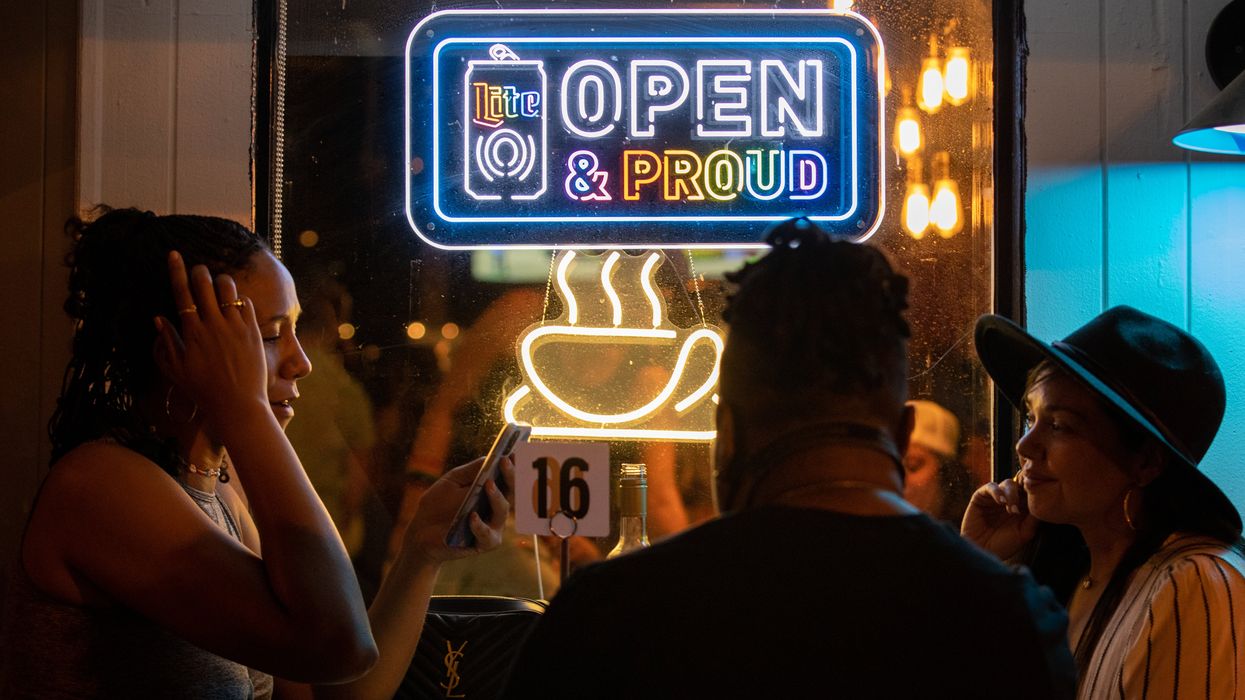Connor is assistant professor of sociology at the University of Missouri and a member of Scholars.org. Jackson is a senior at the University of Missouri, Columbia. They both do research at the intersection of psychology, spirituality and queer visibility.
There’s been a noticeable uptick in police harassment since 2023; it began with legislators proposing bills aimed at LGBT+ persons. More recently police and other public officials have seemingly gone out of their way to target the LGBT+ community.
This includes spaces in red states like Missouri, where police officers arrested an owner of Bar:PM (a leather bar in St. Louis) after they crashed their police vehicle into it. But blue states are not immune to this: In Seattle authorities raided The Cuff and The Seattle Eagle, citing them for “lewd conduct” because a bartender had an exposed nipple and patrons were wearing jock straps.
As many LGBT+ activists are already aware, policymakers have been pushing legislation targeting the LGBT+ community. Among the proposals at the federal level is the Kids Online Safety Act, a bill introduced by Sen. Richard Blumenthal (D-Conn.) in May 2023. Endorsed by President Joe Biden, the bill is a bipartisan initiative to “protect” kids from harmful online content by placing a responsibility on social media platforms to regulate content and services. Republican Sen. Marsha Blackburn (Tenn.) noted, if passed, the bill would be used to protect “minor children from the transgender [sic] in this culture and that influence.”
While KOSA seems to have stalled, despite urging from the Biden administration, states have begun passing their own versions of the bill — or enforcing laws at LGBT+ venues like The Cuff. Utah’s obscenity laws have even caused PornHub to stop operating in states passing these laws, due to their vagueness.
While some may dismiss these concerns as overblown, it seems clear that it is only one part of a larger strategy aimed at curtailing LGBT+ expression. The irony is that those espousing “freedom” are the same passing these censorship laws. This gradual ratchet effect, which began last summer with the targeting of children’s books and LGBT+ persons online, has now shifted into something targeting LGBT+ institutions. It’s the same rhetoric used in the 1960s — which included government-produced propaganda directed at LGBT+ people, painting them as a social contagion dangerous to kids. At the height of this moral panic were laws prohibiting positive depictions of LGBT+ persons, the impact of which is still being felt today through stereotypes and negative framing.
Even in states that aren’t adding to this moral panic, KOSA has provided the framework by which they can pass vague “obscenity” laws that appear neutral, but in practice are aimed at LGBT+ persons. Structural forms of discrimination also exist online as social media platforms act as determiners of what is allowable under their guidelines. In reality, moderation disproportionality impacts LGBT+ persons, and especially trans women. According to a recent study, content moderation was five times more likely to impact trans people than their cis-gendered counterparts. These facts and figures resonate with trans content creators we spoke with, like Polly People, who was recently de-platformed for “inappropriate attire” — the same attire that is promoted by cig-gendered women on the same platform.
Whether it's jockstrap night at the local leather bar, trans content creators trying to express themselves, or protests of expressions of sexuality at pride events; we are quickly descending into an age of marginalization that many LGBT+ people haven’t experienced since before Stonewall. While some of the established forms of collective organizing and community have been forgotten or lost, new forms are emerging to fight against these laws and regulations designed to further marginalize and render invisible the lives of LGBT+ persons.



















